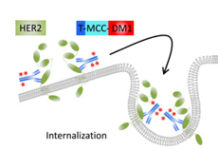Findings from the first study that investigated perspectives of cancer patients during the COVID-19 pandemic are published by a group of oncologists from the Netherlands on 4 July 2020 in the European Journal of Cancer. The study demonstrates the significant impact of the COVID-19 crisis on cancer care with most patients being very concerned in terms of their oncological treatment or follow-up, indicating the need for psycho-oncological support during pandemic.
The authors wrote that besides limited capacity of medical care in general, the COVID-19 pandemic has specific impact on cancer care. Oncologists and patients are confronted with uncertainties about the safety of anticancer treatment during the pandemic, balancing between the risk of exposure to infection and the risks of postponing lifesaving or life-prolonging anticancer treatments.
To assess patients’ perspective on the consequences of the COVID-19 pandemic on anticancer treatment and follow-up, an online survey was developed by the Dutch Federation of Cancer Patients Organisations in close collaboration with oncologists and representatives of patient advocacy groups and the Dutch Multidisciplinary Oncology Foundation. The Dutch Federation of Cancer Patients Organisations, Dutch hospitals, Dutch Cancer Society, and cancer specific patient advocacy groups distributed the survey to patients by direct mailing, announcements on websites, and social media. The survey was open between 29 March and 18 April 2020.
The survey consisted of 20 questions on four topics: patients’ characteristics, contact with the hospital, consequences of the COVID-19 pandemic, and concerns about COVID-19.
In total, 5302 cancer patients completed the survey. Overall, 30% of patients reported consequences for their oncological treatment or follow-up. In the majority of cases it was about conversion from hospital visit to consultation by phone or video.
The most frequently adjusted treatments were chemotherapy (30%) and immunotherapy (32%).
Among patients whose treatment was delayed, 55% were very concerned about it and 63% of patients whose treatment was discontinued were very concerned about such consequence of the COVID-19 pandemic.
Consequences were independent of regional differences in COVID-19 incidence. However, patients in regions with high COVID-19 incidence were significantly more concerned than patients in other regions, independent of the treatment adjustments.
The study team underlined that the findings from this survey conducted among cancer patients in the Netherlands during the national lockdown indicate that all patients could benefit from more psycho-oncological support and information, for example by use of webinars. Additional support for patients facing the daily consequences of the COVID-19 pandemic would be beneficial.
The authors emphasized that the COVID-19 pandemic has inescapable consequences for healthcare systems and adjustments in non-COVID-19 medical care cannot be avoided. They wrote that in the near future, it will be a challenge to reorganise cancer care while still facing the COVID-19 pandemic. Furthermore, the magnitude of all adjustments of cancer care on survival and quality of life of cancer patients is still not known.
This research did not receive any specific grant from funding agencies in the public, commercial, or not-for-profit sectors.
Reference
de Joode K, Dumoulin DW, Engelen V, et al. Impact of the COVID-19 pandemic on cancer treatment: the patients’ perspective. European Journal of Cancer; Published online 4 July 2020. DOI: https://doi.org/10.1016/j.ejca.2020.06.019






